7 Signs You’re Allergic to Alcohol

You don’t need to be allergic to alcohol to feel ill after a night of drinking. Pour your glass a little too generously, and you may experience nausea, vomiting, memory loss, and more. Even drinking in moderate amounts can wreak havoc on your health over time, putting you at increased risk of cancer, cardiovascular disease, and liver disease. It seems there’s no shortage of ways that alcohol can cause you harm. And on top of these dangers, people with an alcohol allergy or intolerance can face additional symptoms—but are often unaware of the cause.
Allergies and intolerances may seem the same, but they’re not: An intolerance is a genetic metabolic condition, while an allergy is an immunological response to a particular ingredient within the beverage—such as grains, chemicals, or preservatives. What they have in common, however, is that both can cause significant symptoms soon after the very first sips.
“To distinguish whether a person is allergic to alcohol or just drank too much, it is important to pay attention to when the symptoms started,” says Rosmy Barrios, MD, a doctor and medical content author at Health Reporter. “Symptoms caused by allergy occur immediately or after a few minutes of consuming alcoholic beverages, while symptoms associated with drinking too much appear much later.”
Read on to learn which seven symptoms could mean you have an alcohol intolerance or allergy—and and be sure to speak with your doctor if you notice them, especially while drinking in moderation.
READ THIS NEXT: If This Happens When You Drink Alcohol, It Might Be Time to Stop.
1
Facial redness
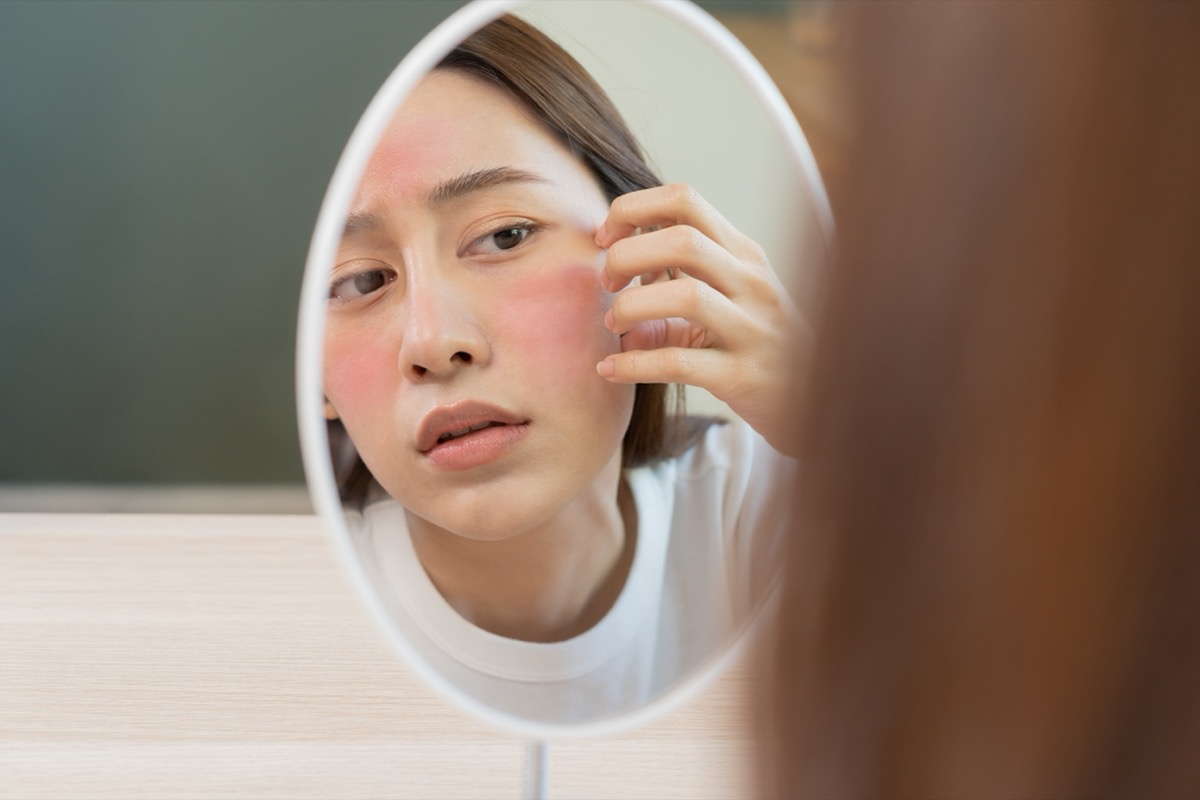
According to the National Institute on Alcohol Abuse and Alcoholism, having a flushed face immediately after drinking can be a key sign of an alcohol allergy. “Of particular significance, the alcohol flush reaction is linked to a higher risk of certain types of cancer,” the organization warns, noting that esophageal cancer and breast cancer are most closely linked.
2
Red, itchy skin bumps

Many people with an alcohol allergy develop hives after drinking. These are red, itchy welts on the skin which appear soon after consuming alcohol. Gillian Tietz, MS, a biochemist and host of the Sober Powered Podcast, explains that since “genetics determines how efficiently your enzymes work at processing and eliminating alcohol,” some people with inefficient enzymes can experience a buildup of acetaldehyde, which can exacerbate symptoms.
READ THIS NEXT: Brad Pitt Credits This Huge Star With Helping Him Overcome Addiction.
3
Worsening of pre-existing asthma
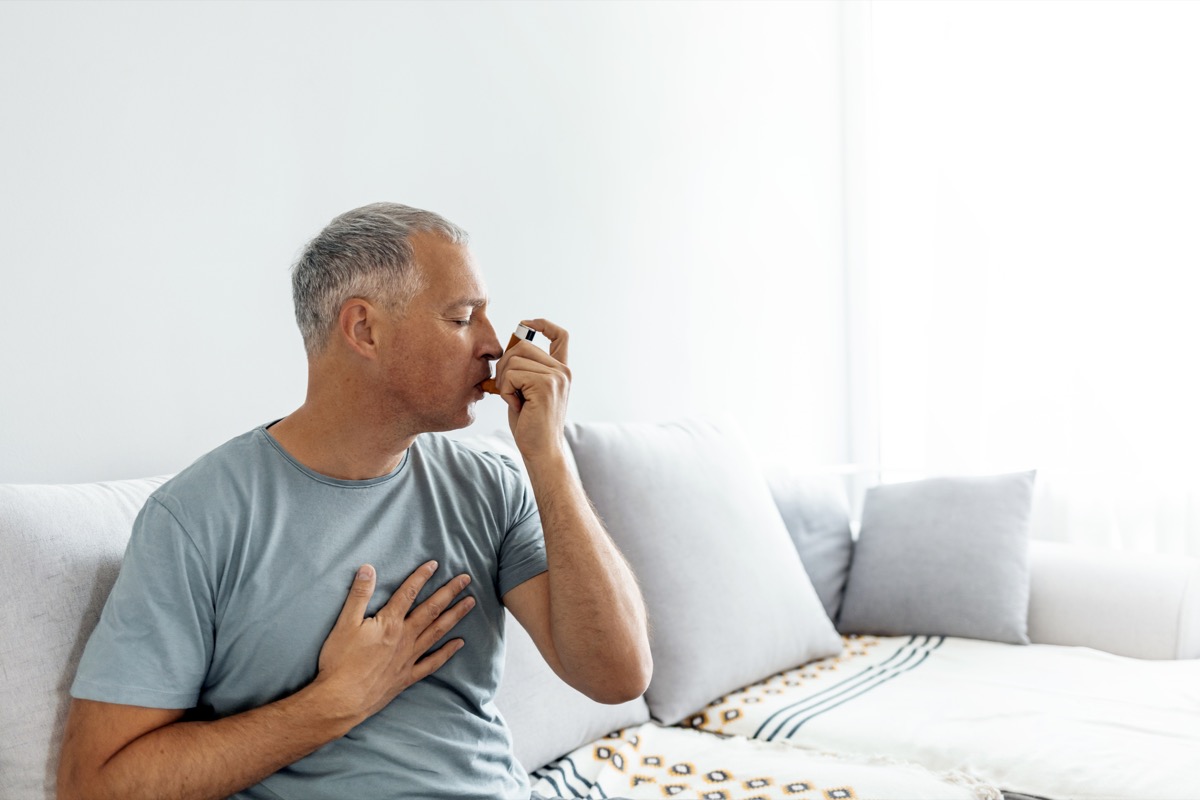
People with both asthma and an alcohol allergy may find that their respiratory symptoms worsen when they drink. “Up to a third of people with asthma complain that wine will worsen their asthma, and less often with beer or spirits,” explains the Australian Society of Clinical Immunology and Allergy. “Beer, wine and champagne contain sodium metabisulfite, which has been used as a preservative since Roman times. Some people, particularly those with unstable or poorly controlled asthma, may wheeze when they consume these drinks.”
4
Runny or stuffy nose
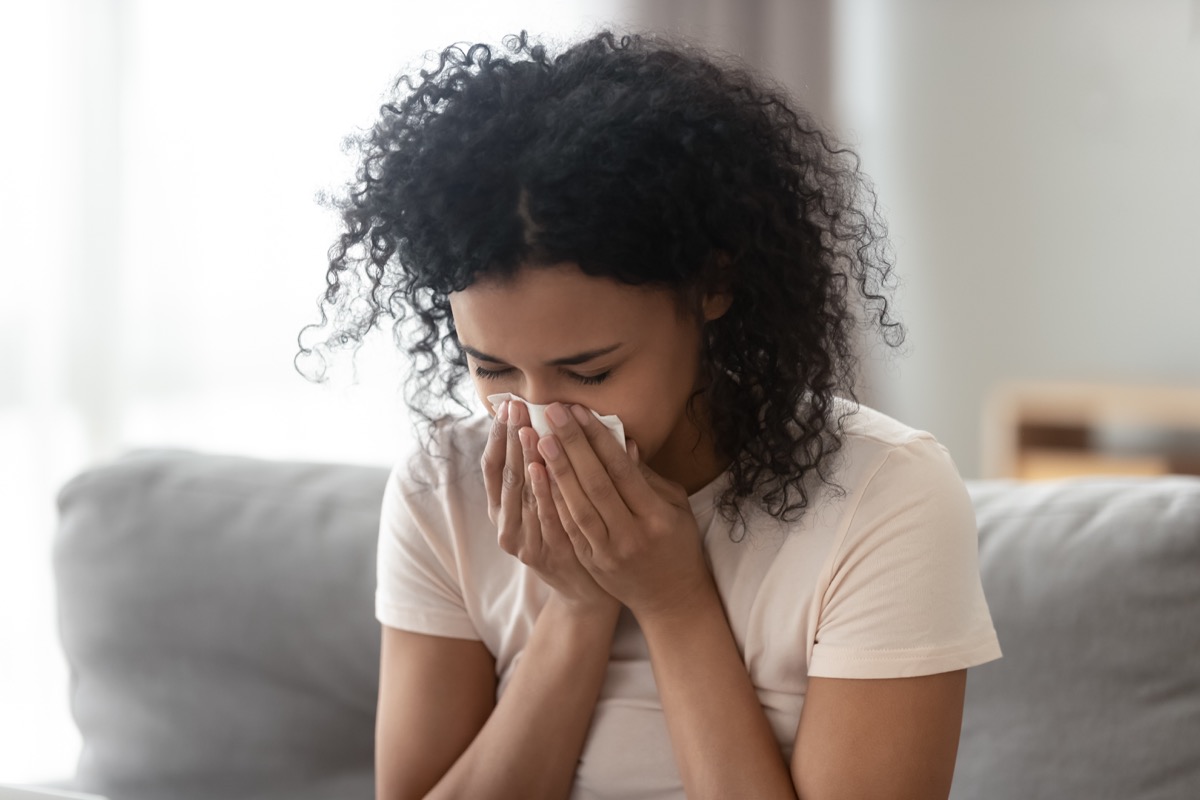
Nasal congestion or a runny nose are also commonly associated with alcohol allergies. According to Go Health Urgent Care, that’s because “wine, beer, and spirits contain histamine, a compound that elicits an allergic response. Of all alcoholic beverages, red wines usually have the highest histamine content.”
5
Low blood pressure
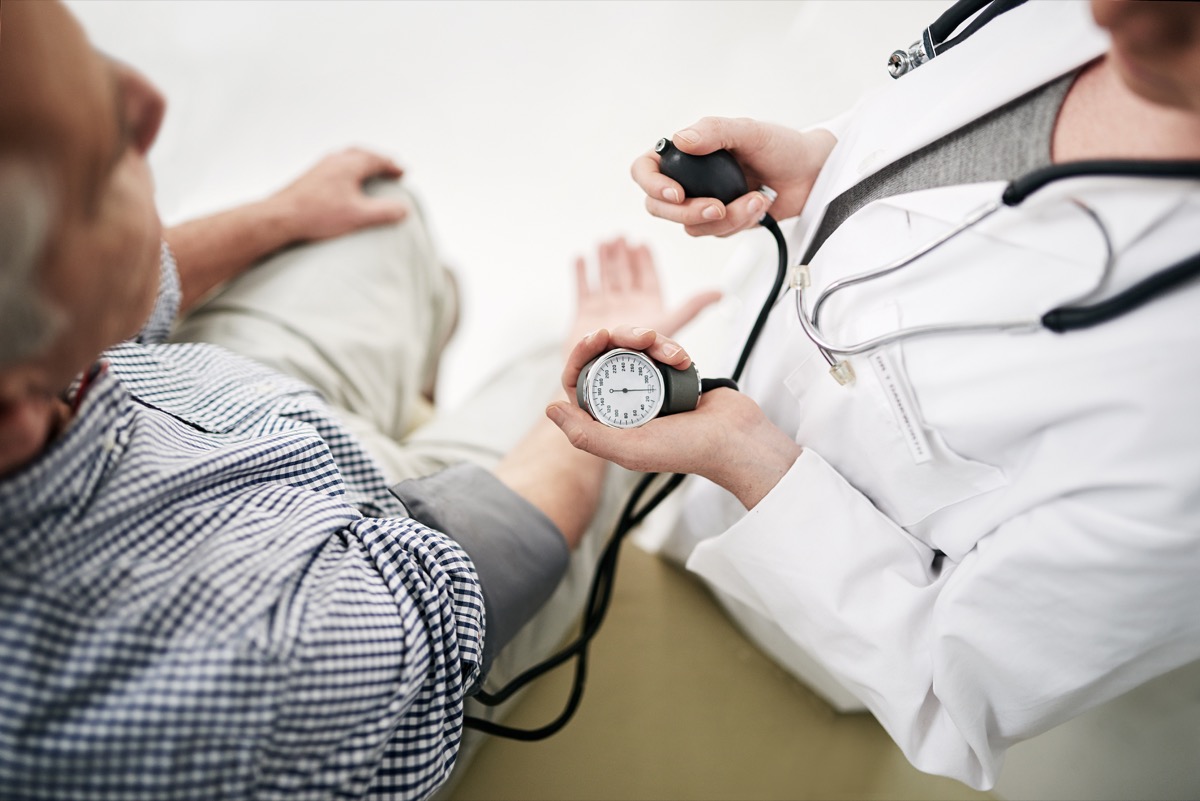
While alcohol is commonly known to raise blood pressure in many people, those with an alcohol allergy or intolerance may experience lowered blood pressure, the Mayo Clinic says. This may be another way to distinguish between symptoms of over-consumption and allergy.
For more health news sent directly to your inbox, sign up for our daily newsletter.
6
Nausea and vomiting
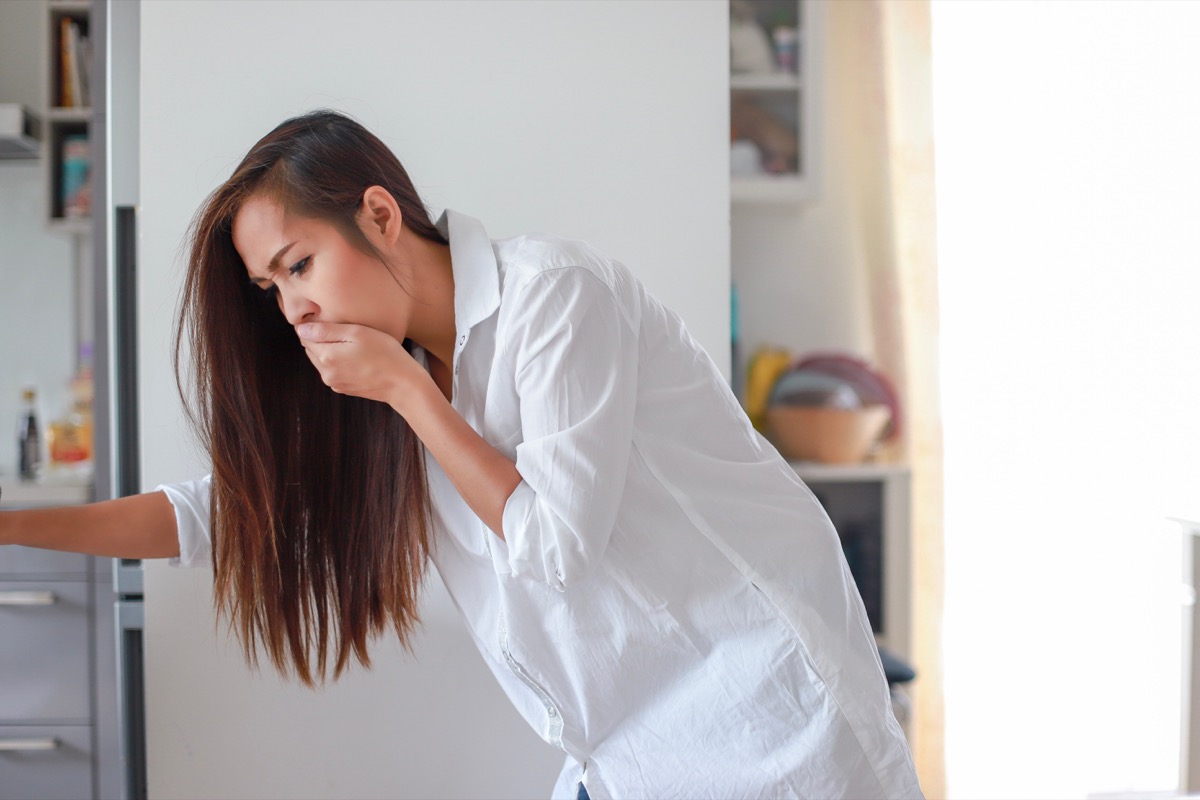
It would be easy to confuse these symptoms with alcohol poisoning, but the Mayo Clinic says they can be a sign of allergy or intolerance. Regardless of its cause, becoming nauseas or vomiting after drinking with any frequency is a clear sign that you should speak with a medical provider about your alcohol consumption, and either cut down or quit entirely.
7
Gastrointestinal problems

Gastrointestinal problems such as stomach cramps and diarrhea are also associated with alcohol allergies, and can occur soon after consuming your first drink. However, even people without an allergy or intolerance can experience this symptom after drinking, since “alcohol agitates the intestines and causes them to react by speeding up digestion,” explains Medical News Today.
If you notice this or any other symptoms of alcohol allergy or intolerance, bring it up with your healthcare provider—and avoid drinking in the meantime.
READ THIS NEXT: The Real Reason Kelly Ripa Stopped Drinking Alcohol.